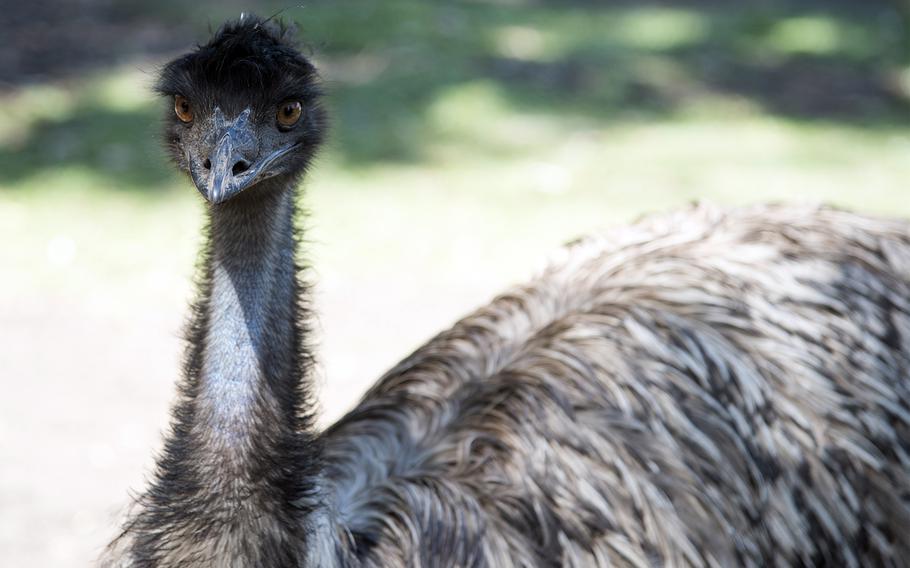
Two emus and six kangaroos live together in a large open space with plenty of greenery at Rockhampton Zoo in Australia. You’re likely to find them relaxing in the shade of the trees. (Kelly Agee/Stars and Stripes)
Visitors to the Rockhampton Zoo in Queensland will find in a catalog of Australia’s unique wildlife, sometimes lined up for feeding time.
The zoo has close to 100 animals from more than 30 species, including kangaroos, koalas and emus. Admission is a donation, of which 15% goes to wildlife conservation programs.
In 2021, the zoo donated nearly $31,000 help support wildlife affected by Australia’s 2020 bushfires, which killed or displaced more than 3 billion animals, according to the World Wildlife Fund.
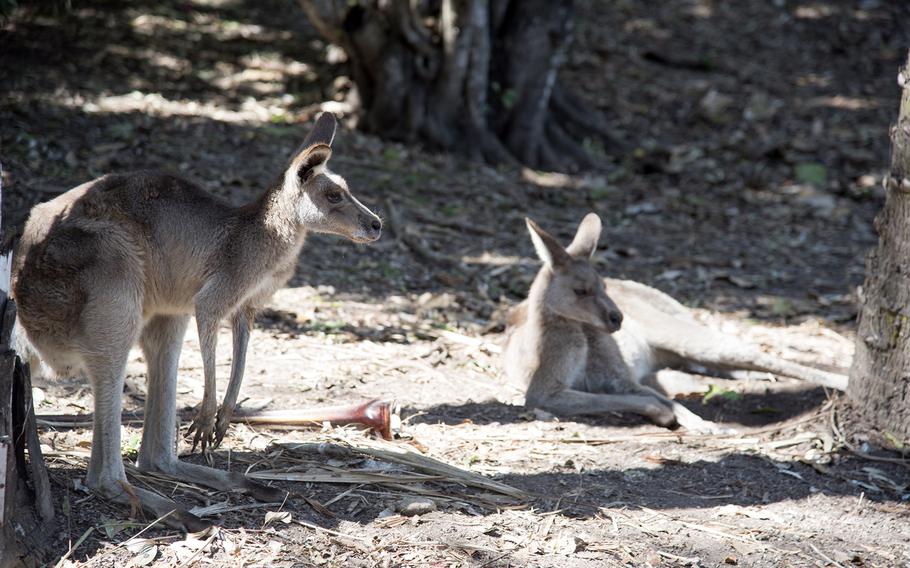
Two emus and six kangaroos live together in a large open space with plenty of greenery at Rockhampton Zoo in Australia. You’re likely to find them relaxing in the shade of the trees. (Kelly Agee/Stars and Stripes)
In the kangaroo and emu area, a personal favorite, two emus and six kangaroos live together in a large open space with plenty of greenery. You’re likely to find them relaxing in the shade of the trees.
In one area, only a wooden rail separates humans from the animal residents. The emus were the scariest species, thanks to the hissing sound they make that’s reminiscent of the velociraptors in “Jurassic Park.”
If guests want to learn more about the animals during their time at the zoo, they can download an audio tour from the Apple or Google Play stores. The zoo also has zookeeper talks at all the exhibits throughout the day; the schedules are posted outside of the exhibits, along with feeding times.
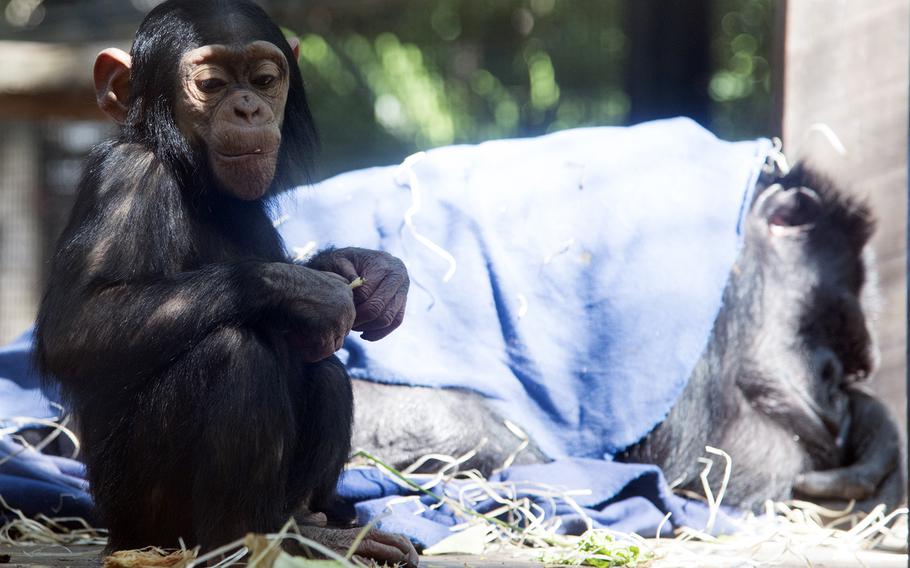
A baby chimpanzee enjoys a meal at Rockhampton Zoo in Australia. (Kelly Agee/Stars and Stripes)
At feeding time for the otters, the animals dove to retrieve the fish zookeepers tossed into their indoor habitat, built to resemble a lake.
At the crocodile talk, I learned the reptiles never stop growing, so their length, as well as their teeth, are indicators of their age.
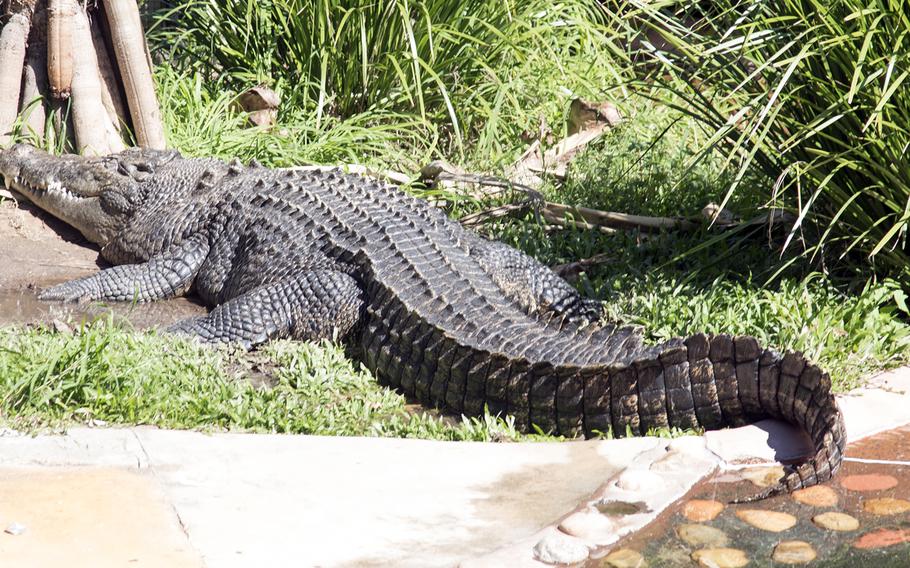
The Colonel, an approximately 50-year-old crocodile at Rockhampton Zoo in Australia, is a 14-foot, 1,110-pound monster. (Kelly Agee/Stars and Stripes)
One of the crocodiles in the exhibit, The Colonel — a 14-foot, 1,110-pound monster — is an estimated 50 years old.
The Colonel has an interesting story. He was captured in northern Queensland, where he was bothering farmers and fishers, and moved to the Koorana Crocodile Farm in central Queensland as a breeding male. His aggressive disposition toward females, however, proved he was no family croc, so he was donated to the Rockhampton Zoo.
I was pleasantly surprised to see that the zoo houses so many endangered and rescued animals.
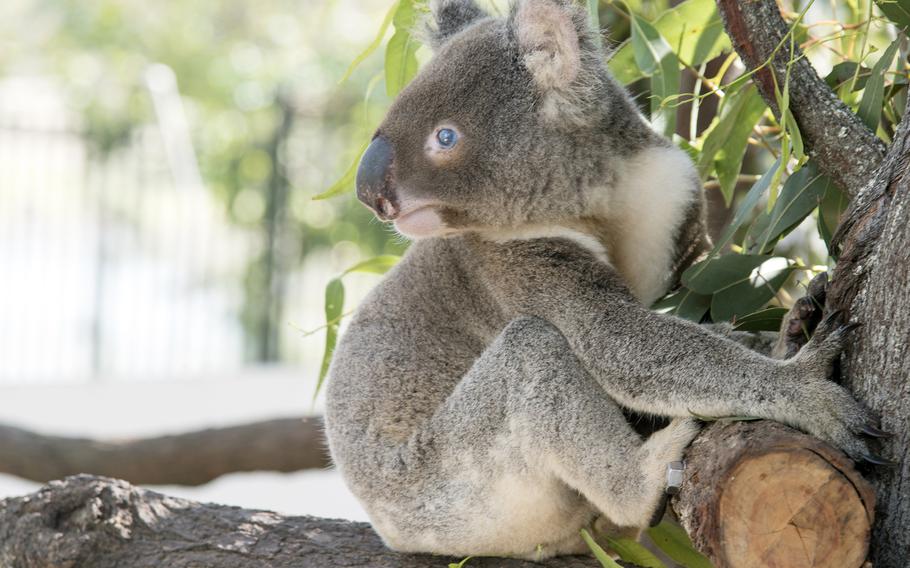
Shaun, a koala at Rockhampton Zoo in Australia, was born with a genetic condition. He's completely blind in one eye, and the other has limited vision. (Kelly Agee/Stars and Stripes)
Shaun, a koala, was born with a genetic condition that rendered him blind in one eye and with limited vision in the other.
Other highlights of the visit were the dingo and wombat exhibits, two Australian animals I’d never seen in person. The dingoes liked to relax in hollow logs but would come out every once in a while. Up close, they look like large dogs.
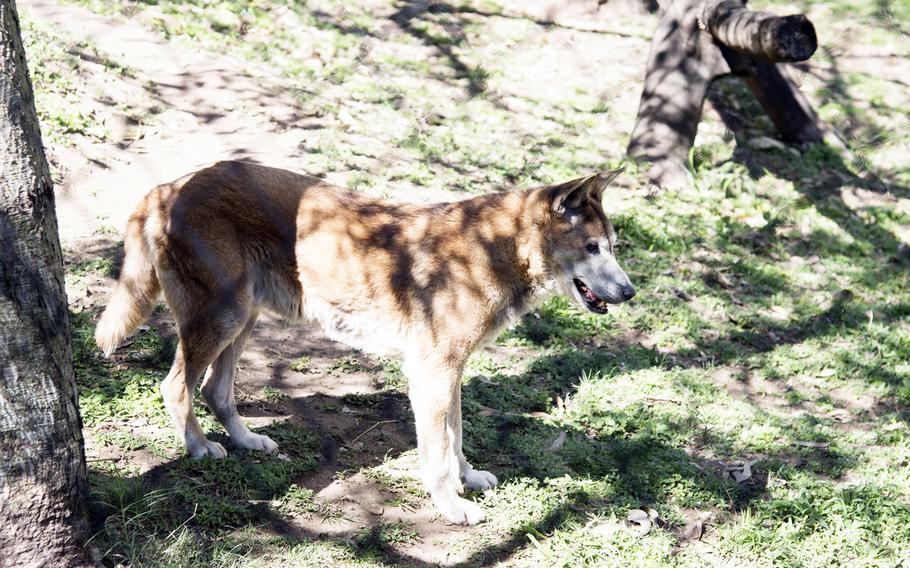
The dingoes at Rockhampton Zoo in Australia like to relax in hollow logs but will come out every once in a while. (Kelly Agee/Stars and Stripes)
The meerkats were very friendly and would greet any guest by coming up close to their glass enclosure, as if they were posing for visitors. There were about a half-dozen chimpanzees, including a baby who rode on the mother’s back.
The zoo is not large, although the animals seemed to have plenty of room in their exhibits. The complete tour took about two hours.
Rockhampton Zoo
Directions: 100 Spencer St, West Rockhampton, Queensland, Australia 4700
Times: Open daily, 9 a.m. to 4:15 p.m.
Costs: Free entry.
Food: The nearest restaurant, the Gardens Tea Room, is a short walk from the zoo. It serves all-day breakfast and a variety of teas. It’s open 8 a.m. to 5 p.m. every day.
Information: www.rockhamptonzoo.com.au/Home